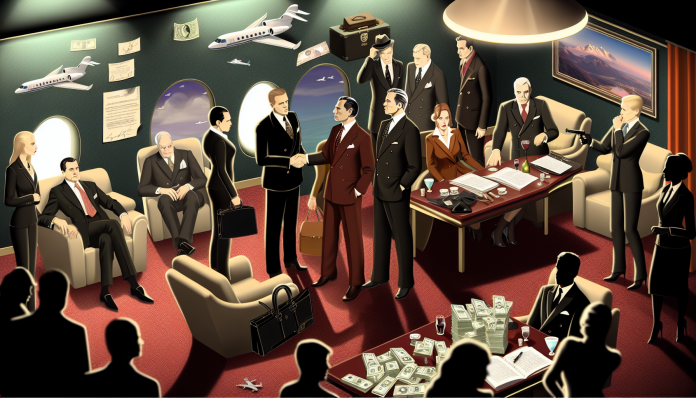Introduction
In the realm of royal scandals, few have captured the attention of the public quite like the turbulent connection between Prince Andrew, the Duke of York, and the late financier and convicted sex offender, Jeffrey Epstein. This scandal, which erupted into public consciousness in the late 2010s, not only tarnished Andrew’s reputation but also ignited robust discussions about power, privilege, and the impact of societal norms. At the time of the scandal, Western society was grappling with the aftermath of the #MeToo movement, which forced a critical reexamination of sexual misconduct and accountability.
The Scandal
The affair began to unravel significantly in 2019, when Prince Andrew’s ties to Epstein drew intense scrutiny, particularly after Epstein’s arrest on federal charges of sex trafficking minors. The scandal culminated when Virginia Giuffre, one of Epstein’s accusers, alleged that she was trafficked to Andrew when she was just 17. The public was met with a chilling photograph: Giuffre with a young Prince Andrew, and a photo with Epstein’s infamous island serving as the backdrop.
In a disastrous BBC interview aired on November 16, 2019, Andrew attempted to distance himself from the scandal but only muddled his reputation further. He claimed to have no memory of ever meeting Giuffre and denied the allegations, stating, “I can absolutely categorically tell you it never happened.” This assertion was met with skepticism, particularly as he detailed an alibi that was quickly challenged by social media and investigative scrutiny. The fallout from this encounter was swift—public and royal backlash mounted, leading to Andrew stepping back from royal duties.
Key Events and Reactions:
- Epstein’s Arrest (July 2019): Rallied media attention exposes the depths of Epstein’s network, with Prince Andrew quickly becoming a focal point.
- Giuffre’s Allegation (August 2019): The resurfacing of past interactions between Andrew and Epstein’s acquaintances raises alarms.
- BBC Interview (November 2019): A controversial attempt at a public defense that ultimately deepens public distrust and leads to a pressing cycle of further media investigations.
Moral and Cultural Analysis
The reactions to Andrew’s involvement were starkly divided, showing the clash between traditional royal protocols and modern expectations for accountability. Some staunch royalists defended him, insisting on the importance of innocence until proven guilty and the uniqueness of royal privilege. However, critics argued that his connection to Epstein, a registered sex offender, implicated him in a system that enabled such predatory practices.
Consequences for Prince Andrew were immediate:
- Stripped of his military titles and royal patronages.
- Public outcry for his complete removal from royal duties.
- Legal repercussions culminated in a lawsuit filed by Giuffre, which Andrew has denied and claimed to have settled out of court in early 2022.
In the modern context, this scandal presents a stark contrast to similar historical events, where aristocratic figures often escaped significant consequences. Today, public figures are increasingly held accountable for their actions, reflecting changing societal norms. With the advent of social media and the amplifying effects of the #MeToo movement, Prince Andrew’s situation perhaps would have led to different outcomes had it occurred a few decades earlier. Now, the erosion of blind loyalty towards the elite hints at a collective demand for transparency and justice.
Ultimately, the tale of Prince Andrew and Jeffrey Epstein encapsulates not just a scandal, but also the evolution of societal standards in an era increasingly aware of the complexities of power and its abuses.

